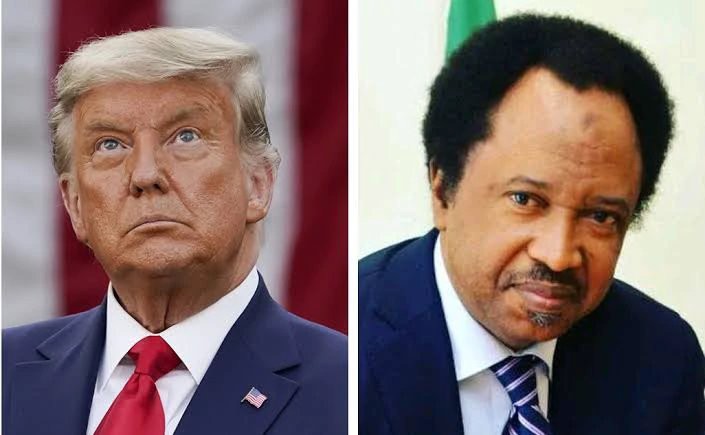A former Nigerian Senator, Shehu Sani, has weighed in on the possibility of a U.S. travel ban affecting Nigeria, urging the country to uphold its dignity in international affairs.
Diaspora Digital Media (DDM) reports that this statement comes amid widespread diplomatic reactions to a new U.S. travel policy that targets 12 countries, mostly located in Africa and the Middle East.
Although Nigeria is not currently listed among the affected nations, Senator Sani’s remarks have sparked online debate over the country’s position in global geopolitics.
The outspoken senator took to his X (formerly Twitter) account at 08:59 UTC, cautioning the U.S. against including Nigeria in its controversial ban.
He wrote:
“The US should not ban Nigerians from traveling to their country. There is no reason to do that. We don’t fall into the category of those countries they consider as threats.”
Senator Sani went further to suggest that Nigeria should respond with equal force if Washington proceeds with such a move.
According to him, “If the U.S. eventually bans us from traveling to their country, we should ban them too.”
He then underscored the importance of self-worth and cultural pride, suggesting that life in Nigeria, even in modest rural settings, can be more dignified than facing discrimination abroad.
“There are those of us who appreciate the peace and dignity of our villages and mud houses than going to live in places where we are not welcomed,” he added.
This statement has since triggered mixed reactions across social media platforms, with many Nigerians supporting the call for mutual respect in international relations.
Others, however, argue that such rhetoric could damage diplomatic ties or deny citizens valuable opportunities abroad.
Senator Sani is known for his bold takes on foreign policy, national security, and human rights.
He previously represented Kaduna Central in the Nigerian Senate and has remained an active voice in civic and political matters.
His latest statement adds to the broader conversation on African sovereignty, migration, and the global perception of Nigerian citizens.
While the U.S. has not indicated any plan to include Nigeria in the latest ban, past events have raised concerns.
In 2020, Nigeria was briefly added to a U.S. visa restriction list under former President Donald Trump, which limited access to certain immigration programs.
That move sparked diplomatic tensions, prompting Nigerian officials to engage in talks aimed at resolving security and data-sharing concerns raised by Washington.
Since then, both countries have worked to strengthen bilateral ties, with cooperation in areas such as trade, health, education, and counter-terrorism.
However, suspicion lingers whenever the U.S. revises its immigration policies, especially when African or Muslim-majority nations are disproportionately targeted.
Observers say Senator Sani’s response reflects broader anxieties among Nigerians, many of whom see foreign migration as a critical pathway to better education, healthcare, and economic opportunity.
Nonetheless, critics of blanket emigration warn that dependency on foreign systems risks undermining national development.
For Sani, the focus should be on self-respect and local dignity, rather than on chasing visas from countries that may view Nigerians with suspicion.
“We must not beg to be accepted,” one supporter posted in reply. “Let them see what we are worth.”
Still, others caution that diplomacy must take precedence over emotional reactions.
A political analyst speaking to DDM on condition of anonymity emphasized that retaliatory travel bans could backfire.
“We need to respond strategically, not emotionally. Reciprocity is important, but so is economic and diplomatic balance,” he said.
As tensions simmer, many are urging the Nigerian government to be proactive in addressing international perceptions and ensuring its citizens are treated fairly abroad.
There has been no official response from the Nigerian Ministry of Foreign Affairs regarding the senator’s comments.
Likewise, the U.S. Embassy in Nigeria has not issued any clarification or update on the potential for Nigeria to be added to the travel ban list.
Analysts say the coming weeks may prove critical as Washington reviews its immigration policies, particularly under changing global security conditions.
For now, Senator Shehu Sani’s call is a rallying cry for national pride and areminder that international respect begins with self-respect.







